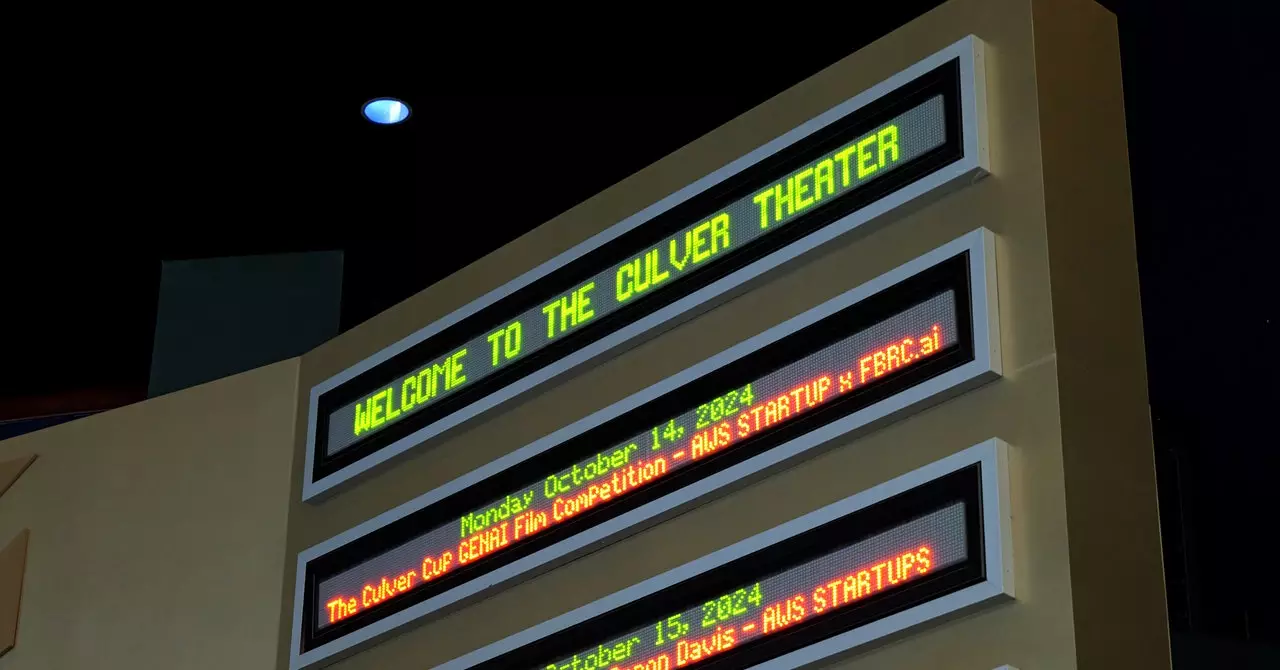In an age where technology evolves at a dizzying pace, the fundamental art of storytelling remains a constant force. As many industry insiders point out, while tools may shift and change, the essence of a compelling narrative continues to resonate with audiences across generations. This idea has become especially salient in the realm of filmmaking, where artificial intelligence (AI) is increasingly being integrated into creative processes. The sentiment that “you have to learn the fundamentals” encapsulates a critical part of using AI effectively in storytelling; mastering these foundations is essential to ensure that technological advancements enhance rather than compromise the emotional depth of a narrative.
A prime example is the short film “Mnemonade,” created by a filmmaker known as Meta Puppet. Focusing on themes of memory and emotional connection, the film signifies the potential of AI to augment storytelling. By utilizing advanced AI tools from companies like ElevenLabs, Meta Puppet was able to diversify voice performances across various characters, showcasing both the innovative possibilities of technology and the importance of human emotion in film. In this process, the filmmaker highlights a major point: for AI-generated films to reach mainstream acceptance, they must evoke real emotional dialogue that resonates with viewers.
However, the increasing prevalence of AI technology in the industry raises legitimate concerns among industry professionals. Filmmaker Maddie Hong captures this cautious sentiment perfectly, acknowledging Hollywood’s understandable apprehension regarding the potential for legal ramifications and financial instability stemming from AI’s capabilities. Issues surrounding copyright infringement loom large, as the lines blur between original content and AI-generated materials. Furthermore, with quality image continuity being a priority for studios seeking to distribute films across various platforms, the integration of AI presents challenges that filmmakers must navigate carefully.
Despite these challenges, there are advocates for the benefits that generative AI could bring to filmmaking. Amit Jain, co-founder of Luma, argues that AI has the potential to provide studios with a new level of flexibility. His perspective is that the traditional Hollywood system has become risk-averse, often requiring studios to bank on established franchises instead of nurturing original ideas. Jain proposes that by embracing AI-driven projects—albeit on smaller scales—there could be an influx of new content, ultimately fostering more job opportunities within the industry.
This notion of opportunity, however, is nuanced. The assertion that AI could foster better career paths for creative professionals clashes with recent industry research indicating that generative AI has already led to substantial job losses in certain sectors of entertainment. A survey conducted among 300 entertainment industry leaders revealed that a significant portion observed reductions in their departments due to the rise of AI technology. While new roles may arise as a result of these shifts, the question of whether they can compensate for lost positions remains somewhat ambiguous.
Particularly in the visual effects (VFX) sector, there is a marked interest in leveraging AI to streamline laborious workflows. However, many artists express a dual concern over the ethical implications and potential job insecurities introduced by AI technologies. This paradox underscores the complexity of integrating AI into creative industries; while its efficiency is undeniable, the ramifications for human labor—long associated with creative expression—pose serious questions that demand careful consideration.
For Meta Puppet, the conversation ultimately circles back to the question of skill. Drawing an analogy between generative AI and the piano, he emphasizes that access to technology alone does not guarantee mastery or excellence in storytelling. Just as many people can learn to play the piano but few achieve the level of artistry exhibited by composers like Mozart, the artistry of filmmaking will still depend on the creative vision of its practitioners. The ability to synthesize AI tools with substantial skill involves juggler-like expertise—a phenomenon that can be both beneficial and burdensome for those in the field.
Through these considerations, one thing remains clear: the intersection of AI and filmmaking is a complex landscape characterized by both opportunity and risk. As the industry navigates this evolving terrain, ensuring that the timeless art of storytelling is not overshadowed by technological prowess is paramount. Embracing innovation while safeguarding the emotional core of narratives will be the ultimate challenge as filmmakers adapt to a future where AI plays an ever-more pivotal role.


Leave a Reply